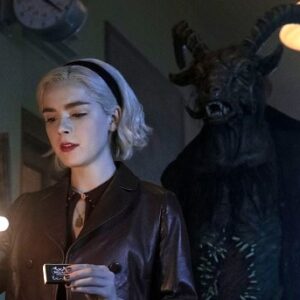
PLOT:
In the classic Shakespearean comedy, a warring couple must make amends when a devious fellow has evil plans for two young lovers. With wit and spark, Joss Whedon presents this romantic fable in a post-modern yet simple way.
REVIEW:
What would you do if you were Joss Whedon and fresh off the massive success of THE AVENGERS? Maybe you would do something action-packed with a big name star taking on the lead? Well, that would be far too predictable, especially since a sequel to that Marvel flick was in the cards. No, the fanboy friendly director not only is taking a step away from a massive budget, but he decided to do something so small and intimate, he literally shot it at his house in Santa Monica, California.
While Marvel is a massive entity, it is no small achievement taking on William Shakespeare and doing it well. And that is exactly what Whedon has done. While the writer/director didn’t go for the tragedy of “Macbeth” or the heartbreaking romance of “Romeo and Juliet” he decided to keep things light with MUCH ADO ABOUT NOTHING. With no attempt to tackle fancy period costumes and extravagant sets – although his house certainly feels a bit extravagant – he put his actors in modern day formal wear and shot the film in black and white. This is not at all what one would expect from the guy who helmed one of the biggest motion pictures ever made.

The story of two ex-lovers Beatrice and Benedick (Amy Acker and Alexis Denisof) who take the battle of the sexes to a whole new level is an enticing one at that. With words of wit that cut deep, they square off as those around them see past their little romantic war. It all starts when Benedick arrives – with a group of what is presumably part of some government agency – he begins to spread his utter contempt of the opposite sex. Even still, his newly found friend Claudio (Fran Kranz) has fallen for Beatrice’s cousin Hero (Jillian Morgese). When the young lover Claudio announces that he plans to marry the fair and pious beauty Hero, the envious Don John (Sean Mahar) decides to plant a seed of jealousy in him causing all sorts of havoc in the household.
Keeping very close to Shakespeare’s original text, Whedon presents this story with a sense of elegance and style. At times, the excessive use of jazz and the fancy clothes come off as slightly pretentious; it ultimately recreates this romantic comedy with infectious fun. There is a real sense of love for the Bard as Whedon allows his actors to playfully sink their teeth into iambic pentameter. This is especially true with Acker and Denisof who get the chance of a lifetime to recreate these iconic roles. Yet it is Acker who simply shines as Beatrice. She ably handles the many comedic insults that she slings at her should be betrothed, as well as the more serious and dramatic elements as she tries to convince Benedick to take vengeance on those who have wronged her cousin.

Visually speaking, Whedon presents this hip take on the Bard with a few nice touches. While every so often one of the more slapstick inspired moments feels forced, the director is able to use the single location to his advantage. It works most of the time thanks to some interesting shots as well as the ability to do whatever the hell he wants in his own home. The party sequence is especially wild as he presents a bold costume ball with music, flying trapeze artists and a bevy of beautiful people delighting in the wonderful world of Shakespeare. Whedon is also credited for the music as well, so this is a very personal project indeed. Not a lot of modern filmmakers would take on classic material and shoot it in black and white on what seems like a weekend excursion.

The cast of course is a who’s who in the world of Whedon. Many familiar faces include a couple of scene-stealing performances from Nathan Fillion and Tom Lenk as less than capable security. Fillion’s role as Dogberry in particular is one of Shakespeare’s most fun characters – Michael Keaton was hilarious in the role in Kenneth Branagh’s 1993 version of the same story. It is also great to see the amazingly charismatic Clark Gregg as father to Hero. He gives the character Leonato warmth and charm and intensity when necessary. While this modernistic take on MUCH ADO is not quite as fancifully vibrant as what Branagh accomplished in a more traditional take, the humor and heart is most definitely intact. This is an intimate and giddy romantic comedy with only a hint of seriousness, one that is as elegant as it is fun.





















Follow the JOBLO MOVIE NETWORK
Follow us on YOUTUBE
Follow ARROW IN THE HEAD
Follow AITH on YOUTUBE